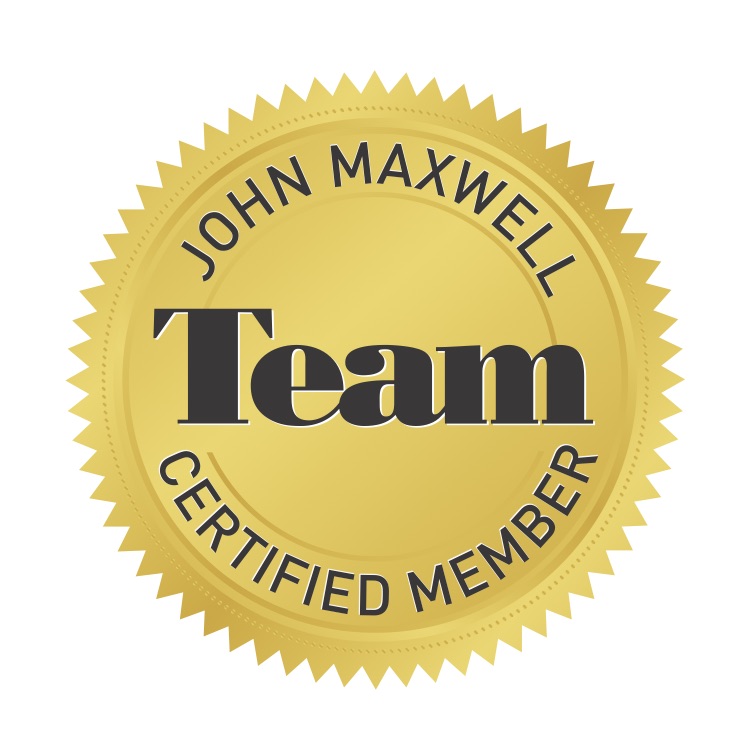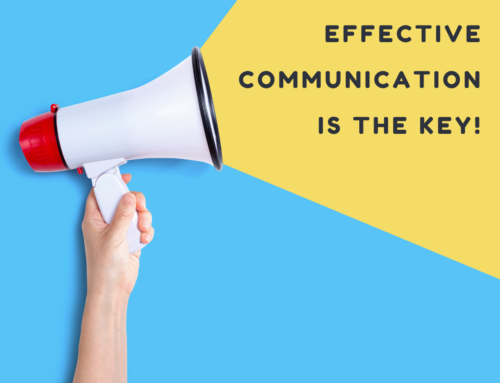What is stress?
Stress is a state of mental or emotional strain or tension that is a result of adverse or very demanding circumstances. Stress is our body’s response to a situation where we feel that we can’t cope up with the particular situation.
Stress is not something that you are hearing about for the first time. Everybody talks about it day in and day out. All of us experience some or the other form of stress on various occasions in our lives.
There are some scary statistics on stress:
- Employers world over lose a combined exorbitant amount of US$ 300 billion a year in annual costs incurred on stress-related health care and missed work;
- 1 in every 3 persons in the world feel that they are living in extreme stress;
- Almost 1 out of 2 people the world over feel their stress levels have increased significantly over the past five years;
- 3 out of every 4 people feel that the biggest reason for their stress is work-related or caused by financial pressures;
- Almost half of the world population can’t sleep at night because of stress;
- Stress has caused 54 out of every 100 people to have fought with people close to them;
- A significant 87 out of every 100 people do not look forward to going to the workplace because of stress but just go since they have to;
- Employee productivity goes down by at least 10% of people work under stress.
Looking at these statistics, the obvious inference is that stress has an alarmingly high impact spread across the population across geographies. Another important reflection of these statistics is that this feeling of stress is not unnatural, unusual, and you are not alone in this.
Stress is not altogether bad. A healthy level of stress sometimes referred to as a “challenge” or “positive stress” is essential for us to be on our toes, stay motivated, and maintain our competitive edge. What is that healthy level is however very difficult to determine since it would vary from individual to individual and from one situation to another.
Powerful and influential personalities, whether it be top politicians or industrialists or businessmen all do get stressed. The stress levels that people can endure vary from person to person. The stress that an entrepreneur, for example, can endure would be completely different from the stress levels of let’s say, a middle class working professional or a performing artist through each one of them would feel probably similar levels of stress in completely varying situations and each one of them may feel that he/ she is the most stressed person on this planet.
How Stress Affects Us?
Stress can deplete the most vibrant of souls. Though some stress may be good for us, it is a no brainer to say that stress is harmful to our body, especially if an individual remains in a continuous state of stress. Continuous stressful conditions can lead to a decline in an individual’s performance which would ultimately lead to, severe emotional, relationship, career, and critical health issues. Stress is a silent killer and can indeed have traumatizing health effects. Talking of a health impact, stress can result in things as mild as slight constipation too as big as heart attacks, skin disorders, deep depression, etc. etc.
Forms of Stress
Before we go on reading about ways to combat stress, let us see some examples of stressful situations and understand the type of stress each one depicts.
- Lack of rest or long hours spent in physical labour can physically stress the body.
- Excessive/ a dosage more than the body is used to of caffeine, drugs, alcohol, etc. may chemically stress the body.
- There could be mental stress resulting from a feeling of anxiety either due to the happening or non-happening of an event or by working longer than usual working hours or due to any other mental tension etc. Many times, people would get mentally tensed for events/ situations which may never happen/ occur.
- Emotional feelings of anger, guilt, frustration, failure, fear, etc. may bring emotional stress to an individual.
- People may get traumatic stress having been through significant events like divorce, break-ups, accidents, family/ friend tragedies, job loss, financial pressures, etc.
Even positive developments in life may bring stress along. A promotion or added responsibilities you may be aspiring for all along when it comes may bring a lot of stress to people. Workload, or the lack of it, pace of work, or the lack of it, autonomy, or the lack of it, fixed working hours, or the flexibility therein, job security, career development opportunities or the lack of it may all bring a lot of stress to people.
How to Combat Stress?
So what’s the big idea today? I am not saying that as soon as you finish reading this article, you would be perfect individuals immune to any kind of stress. No, that is clearly NOT the idea. Today has to be a beginning where we start to take active steps so you can handle stress in a much better way. These steps taken over a while will enhance your level of self-confidence, which eventually would give you greater inner peace, and you would feel less stressed. Now, this self mastered the art of stress management over a while would actually make you feel not getting stressed that frequently.
There may be situations causing stress about which we may not have any control whatsoever. For example, a prophecy of the world coming to an end may have caused worry and stress in many people but do you really have any control over this. People having a phobia of flying may be stressed all throughout a long flight thinking of an air crash which may not happen at all. Even if such events do occur, do we have any control over them? So there is no point worrying and getting stressed about that. It would be much better in such situations to be able to come to terms with this fact that we can’t be in control here. That self-realization itself would bring a lot of inner peace to you and help manage your stress levels in a better way.
By adopting some simple techniques and doing things in a better way would position you better to handle many of your day to day stressful situations. Below are a few things which you could very easily start adopting almost immediately, which can help bring down your stress levels significantly:
- Build a rock-solid daily routine: Though building a rock-solid routine plays equal importance whether it is our work lives or our personal lives, building a solid routine is all the more important in our work lives considering that the biggest forms of stress people are believed to have is work-related stress. It is time for us to stop blaming our surroundings and start taking responsibility. While no workplace is perfect, it turns out most of the time that our gravest challenges are a lot more primal and personal. Our practices ultimately determine what we do and how well we do it. Specifically, it’s our routine (or the lack of it), our capacity to work proactively rather than reactively, and our ability to systematically optimize our work habits over time that determines our stress levels. Bring discipline into your lives. Wake up early enough each day, so you are not rushing things in the morning. Have time for a healthy breakfast and try to reach your workplace 10-15 minutes before the official start timings. This extra 15 minutes every day will enable you to settle down into your work earlier than everyone else.
- Meet yourself: I strongly recommend that we spend some time alone with ourselves planning our day before we really jump into our daily hustle-bustle. Choose whatever time suits you best but don’t compromise on this planning time. I prefer to plan my day, an evening/ night before. Also, I spend an hour each weekend to plan for the activities of the next week/ month. Look at your calendar, your key deliverables, approaching deadlines, and accordingly plan the activities for the next day/ week/ fortnight/ month, etc. Make sure you capture every commitment that you give either to yourselves or to others and ensure that tasks required to be done to fulfil such obligations appropriately get onto your to-do lists. This planning activity equips you much better to handle all these tasks smoothly and to help reduce your stress levels significantly. About 15 minutes to 30 minutes meeting each day and about an hour spent every weekend with yourself can do wonders. The most important benefit that this planning brings is that you are able to schedule your planned tasks in a much more efficient manner, and can appropriately slot for unexpected/ non-planned activities that are bound to come across your way and to help manage your to-do lists to practical levels. Make every day a masterpiece.
- Find focus in a distracted world: Today, we live in a highly complex, dynamic, info-age world with all the ingredients spicily mixed up to distract you to the extent possible. Work pressures, family pressures, social pressures, information overflows all bring in a lot of stress. Social media platforms if not optimally used, are known to have impacted society more negatively than in a positive way. Various social media platforms available to us today practically free of cost have actually done wonders by linking people with their friends and relatives across the remotest corners of the world. These connections have actually helped people share ideas, concerns, moments of joy, happiness, grief, etc. eventually helping them to fight and reduce stress in their lives. However, the addiction that these platforms bring has immensely affected bright and promising individuals. I have seen people, in my very own circles who could have done much better in their very own professional lives but for their addiction to such social platforms.
Not only social media but our inability to prioritize our work optimally also results in a clear lack of focus and major cause of increased stress. We get to the office every morning having some very critical things to be done. What actually happens is as soon as we get to our workstations, we get hijacked by one of the most amazing tools invented ever, email. It is only much later that we realize that we have been checking and responding to emails which could have waited till later in the day and this has happened at the expense of the critical tasks that had to be done before. The result, high-stress levels.
What you need to do strictly is to establish the hard edges of your day. You must prioritize work that must be done. You must create slots for creative work, meetings, correspondence, and email, administration tasks, etc. Unless you do this, you would always find yourself overwhelmed with work which does not necessarily need your focus at that particular hour. - Follow the “Sundown Rule”: What essentially the Sundown Rule implies is that we should turnaround on any requests made to us for any information to be furnished or any activity to be completed by the end of the day or by “sun-down” the same day the request is made. This rule is an excellent self-motivator that I picked up from one of my earlier organizations where I worked, and this really does wonders by improving employee productivity across the organization. There may be instances where the information requested needs time compiling, or the tasks to be completed may take longer than a day to be completed. In such cases, it is our duty to revert to the requestor acknowledging the receipt of the request and informing him/ her of the date when we would be able to fulfil the request. Once you make such commitment, then ensure that you keep up to your promise and then see a significant reduction in your stress levels. A large part of our stress is build up because of the reminders we get from our colleagues, supervisors, and subordinates asking for information and certain tasks that we have to accomplish and on which others work is dependent upon.
- Sharpen your creative mind: Human beings are the only creatures empowered by nature with creative instincts. It is due to the creativity of the human mind that we have evolved the way we are today. Such evolution and development is a continuous process that will never stop until humankind is alive on this planet. The key is for each one of us to find our creative instincts and continue to sharpen that. No one knows us better than ourselves. Look for your creative talents, what gives you joy, what makes you happy, what are you passionate about. Bring your ideas to the world, execute them, and experience the joy and be a less stressful person. The better way to put this would be to say: Invest in Yourself. We spend huge amounts of money on the luxuries of life – driving the best cars, watching the biggest televisions, travelling to the nooks and corners of the world, buying clothes of super-premium brands, etc. Though we may continue doing so as far as our means permit that, the big idea here is to suggest that please do invest in your professional development as well whether it is to enhance knowledge in your profession or to hone your creative talents or to enhance your skills in whatever you are passionate about. Attend conferences, seminars, workshops, mentoring sessions, etc. Read as much as you can regularly and consistently on the subject you are interested in. Do not wait any longer. There wouldn’t be a better time than now to develop yourself and become even better individuals than you are today.
- Be fit: Another important stress reducer is to be a fitter and healthier individual. Numerous researchers have repeatedly proven that healthy individuals are less prone to diseases largely caused by high-stress levels in a persons’ body. Eat a healthy diet each day and take time out at least four days of the week to go for a long walk, do some exercises, maybe go to the gym, whatever suits you, but make sure that you maintain a healthy body. You may be the busiest person in your workplace with back to back meetings all day, but everything has to wait when you are sick and unable to move out of your bed. Always remember the wise old saying that “Health is the Best Wealth” and “All is Lost if Health is Lost”.
This, by no means, can be an authoritative or an exhaustive list. Also, I do not consider myself an authority on stress management. These are just a few practical and easily adaptable tips to help reduce stress in our day to day lives.
I would like to close my article with one powerful thought:
“Happiness comes from within. If you choose to be happy, no one can ever take that happiness from you.”
Thank you for reading!!







Hola! I&#;2178ve been reading your web site for some time now and finally got the courage to go ahead and give you a shout out from Porter Tx! Just wanted to mention keep up the fantastic work!